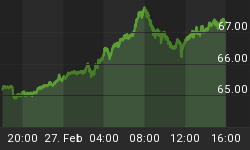As all recovery hopes are now pinned on the efficacy of Washington's next stimulus package, President Obama has opened the bidding at $825 billion. Most Republicans see this number as too big, and many Democrats see it as too small. If the question is one purely of impact, then under these circumstances, the Democrats are probably correct.
Measured against the erosion of some $20 trillion from American household wealth in just two years and the waste of some $3 trillion (including long tail medical liabilities) on a fruitless war in Iraq, populists and democrats will label Obama's planed expenditure as relatively small. They will argue that to affect a noticeable change in America's $14 trillion economy, a much larger stimulus is needed. However, this would be the sort of change that would paralyze the economy for years, perhaps decades.
From my perspective, the size of Obama's proposed stimulus may be just large enough to prevent widespread dissatisfaction with government inaction but small enough to leave room for a great opportunity -- the genuine restructuring of the American economy.
For the past 30 years, an increasingly socialist U.S. Congress has drastically overspent in its errant attempt to 'help' everyone. In so doing, it has depleted the wealth of a hugely productive economy by consistently encouraging citizens to consume more than they produce. Today, America's standard of living is financed largely by depreciation of the U.S. dollar, high taxation and by massive borrowing, from citizens, foreigners and from future generations.
The natural cure for such over consumption is a cutback in consumer spending, or a recession. But recessions, by nature, involve high unemployment. They are socially painful and therefore carry a distinct political cost if leaders cannot quickly bring recovery. Politicians fear recessions and are loath to accept them as a natural cure of excessive spending. They are tempted therefore to keep exorbitant consumerism alive, by a progressive and unsustainable combination of taxation, inflation, currency depreciation and borrowing. What is happening today is a classic example of this unfortunate political/economic dynamic.
The tragedy is that this reaction prevents necessary restructuring and sustains failed systems. While claiming the converse, the vast sums spent by government have actually prevented the vital but painful restructuring of the American economy.
Some argue that Obama's proposed stimulus package is not only too small, but also too late. Ironically, this may be a benefit. If it does come too late, it will prevent American politicians from 'saving' individual industries and companies that have no hope of sustainability. By force of circumstance, it will allow a recession to do the hard and unpleasant job of restructuring the American economy.
In short, the political or financial inability of Congress to fund a larger stimulus package could be a major blessing in disguise. It may not help the current office holders, but it could benefit greatly America's economy, its citizens and non-U.S. citizens who trade with America.
If President Obama sticks to his expressed intent to spend on 'real' job creating enterprises, there will be less and less money available for Congress to spend on 'rescuing' defunct industries, companies and jobs. All this presages a possible major restructuring and turn-around in America's economic fortunes. At long last, it's possible to see such events unfolding. However, it will only be possible by a firm stance with no deviations.
This may mean that Obama's policies may more likely be supported more by Republicans than by those in his own Party.
In order to survive against a Democrat dominated Congress, President Obama must be able to speak over the heads of Congress directly to the American people in order to inspire them to accept the short-term pain of recession in return for the long-term gain of economic revival and the return to America of genuine wealth creation. For those listening, there was a whiff of support for capitalism in his inauguration speech. Let's hope his words were not merely fig leaves.
Therefore, as strange as it may seem, a stimulus package which is both too late and too small, may be just the blessing that America needs to restructure its economy and return to the generation of long-term wealth creation.
For a more in-depth analysis of our financial problems and the inherent dangers they pose for the U.S. economy and U.S. dollar, read Peter Schiff's just released book "The Little Book of Bull Moves in Bear Markets." Click here to order your copy now.
For a look back at how Peter predicted our current problems read the 2007 bestseller "Crash Proof: How to Profit from the Coming Economic Collapse." Click here to order a copy today.
More importantly, don't wait for reality to set in. Protect your wealth and preserve your purchasing power before it's too late. Discover the best way to buy gold at www.goldyoucanfold.com. Download Euro Pacific's free Special Report, "The Powerful Case for Investing in Foreign Securities" at www.researchreportone.com. Subscribe to our free, on-line investment newsletter, "The Global Investor" at http://www.europac.net/newsletter/newsletter.asp.















